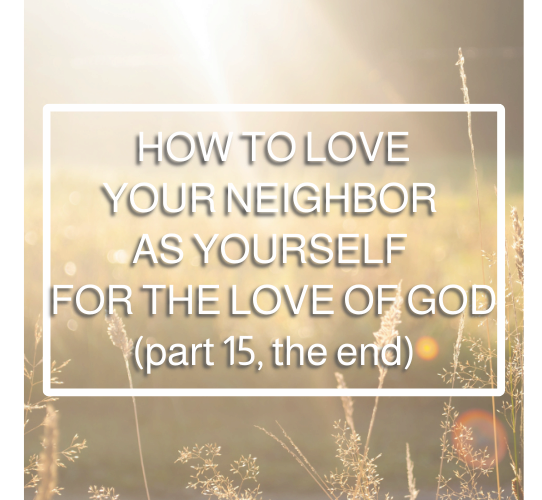You are a Real Thing
YOU ARE A REAL THING
[This is a devotional about the nature of the Bible and of our lives. It's more of an essay than an exposition. It’s a bit longer.]
I’ve been reflecting on the Bible’s historicity. That is the question of whether the story of the Bible is meant to be read as existing within the same universe, the same timeline, on the same planet, having the same sorts of people, as our lives. The answer, of course, is yes: The Bible is clearly, thickly, meant to be read as historical. All measures of historicity verify this.
Everywhere you turn in Scripture authors are referencing geography—this town, that river—and chronology—“the year of…,” “the next day”—and genealogy (all those piles of strange-sounding names)—and culture, all the unique details of everyday life we tend to overlook. Anywhere you put your finger on the text of the Bible, you are dropping into the lives of people who lived in a place at a time.
And, more than that, they want you, the reader, to know where they came from, who they’re descended from, and when things happened. They’re interested in history, and they invite us to care about their history too. The Holy Spirit inspired all those genealogies for our good, right?
The thickness of the Bible author’s concern for history undermines all attempts to de-historicize it. Because, for reasons we’ll reflect on here, this seems to be one of our most basic impulses when handling Scripture.
People either devote themselves to proving that it’s not historically factual, or they simply let that balloon float away and interact with the Bible in a strictly “spiritual” manner. So, on the one hand, there’ve been hundreds of books written in the last two-hundred years “debunking” historical details of Scripture. All these debunkings have been later revealed to be bunk. But this seems to be a hard habit to kick. And on the other hand, there’ve been many more hundreds of books written to “reveal” the secret spiritual meaning of Scripture. These tend to sell better because they’re not so angry. In fact, they seem almost reverential—Christians get sucked into these writings more frequently than the other kind. But… still bunk.
For some reason, we find the Bible’s historical factualness hard to endure. It’s so real. It’s so true. There are many parts of the Bible’s stories, many claims it makes, that we would like to ignore. Thomas Jefferson famously attacked the Gospels with a pen-knife, excising what he didn’t like. Ah, there’s a nice Bible: inspiring, refreshing, uplifting, challenging enough without being depressing. Like a personal trainer or a life coach. Someone you can hire and fire. (But who never asks you to worship, and who never ends up on a cross.)
That’s part of our squeamishness at the thick historicity of Scripture. But I think there’s more.
I mean, we don’t like our own historicity either.
It is common, later in life, to take an interest in genealogy or in family medical history. At some point in your forties or fifties you end up on a couch talking about your parents.
But for most of us, most of the time—and this is the invitation of our culture as a whole—we live as non-historically as possible. We don’t know our land or what happened here. We don’t know our parents or their upbringing or reflect on our own. We don’t think about what’s happened to us and what that is doing to us. We don’t think about aging and death.
We think about youth, about pleasure, about purchases, about becoming more like this celebrity or that influencer. We plan to move, to relocate, to upgrade. We want to be mobile, upwardly mobile preferably, but always mobile either way: roads, cars, planes, job opportunities, vacations, bucket-lists. We want to be seen seeing the world.
Our high school, our siblings, our grandparents, fade out of focus. What trees grow in this place? What crops are native? What animals used to live here? The shape of our lives is all flat pavement and franchise restaurants. The place we live is indistinguishable from all other places, except for precipitation and temperature (which we haven’t yet managed to control). The people we live with are interchangeable. Bosses, coworkers, neighbors, church members, come and go, move or move on.
Life-coach guru Tony Robbins leads people through something he calls “The Dickens Process," based on Charles Dicken’s A Christmas Carol. Just as the ghosts of Christmas past, present, and yet to come guide Scrooge, Robbins guides people to consider their past, present, and future. By all accounts this is a transformative experience for people. I doubt it would have been so transformative for our great-great-grandparents, or for the Jewish people of the biblical era. But we are so dislocated from history and give it such little attention.
We love to think we’re free-radicals. We float around the universe, utterly ourselves, utterly free to be, to become. Our past doesn’t affect us. Our present can be easily modified. Our future is too far away to consider.
But we are not free from history. Every one of us has parents. Every one of us has childhoods. Every one of us carries within us not only our genetic heritage, but an inheritance of tendencies, behaviors, narratives, that effect our friendships, our finances, our religious feelings, our health, and so on. Every one us, also, is going to die. Some of us will age and die. And we will age in ways similar to our parents, grandparents, and their parents.
Just as the Bible is thickly, richly, historical, so too are we. Both of these must be honored. And then they can be connected.
In our church and tradition, we tend to honor the historicity of the Bible. At the same time, we avoid our own historicity. This leads to a disconnection. The Bible handles its story in a way that is foreign to how we think about our stories.
But the reality is that we’re living in the same story the Bible is telling. And just as it’s important to honor the historical context of Scripture, so too it’s important to honor our own story. You are historically factual. You happened to this world. You are happening and will happen.
And just as our understanding of Scripture is increased when we get to know the historical context, the backstory, better, so also our understanding of ourselves, of our lives, is increased when we get to know our historical context and backstory. And as we understand the Bible better, and ourselves better, we’ll be better able to understand the Bible’s relevance to our lives.
So long as the Bible is spiritual self-help, part of my project to be a better whatever-I-want-to-be, it’ll ring hollow most of the time. That’s not what the Bible is, so it will disappoint our inner guru. If the Bible’s been like sand in your mouth lately, if you feel like you’re always hunting for just a morsel of something helpful, it’s probably in part due to this disconnection.
The Bible is theology, spirituality, yes, but imbedded in real history. That means that it has truths and guidance for you and me, imbedded as we are in real history too.
The Bible is a story, a history. You are a story, a history, being told, being lived out, in the same world as the Bible’s. So what it says—bad news, good news, warnings and guidance—is real, and really, really, helpful. It’ll save your life, not just your soul. It’ll save your soul, that is, your whole life. For that to happen, though, takes time. It takes time to appreciate the story of the Bible, and to appreciate its relevance to our own story and life, which takes time to discern as well.
I believe that you really exist, that you are an historically real event. You are a real thing. I believe that you were really born and that you will really die. And I believe that you take place within the story, inside the world, among the people, on the timeline, described by the Bible. Don’t be afraid of its history, or of your own. The better we know both, the better we’ll know the love the Father has for us. And that’s what the story is about.
This is a powerful new song we'll be learning together.
Photo by Roman Kraft on Unsplash











